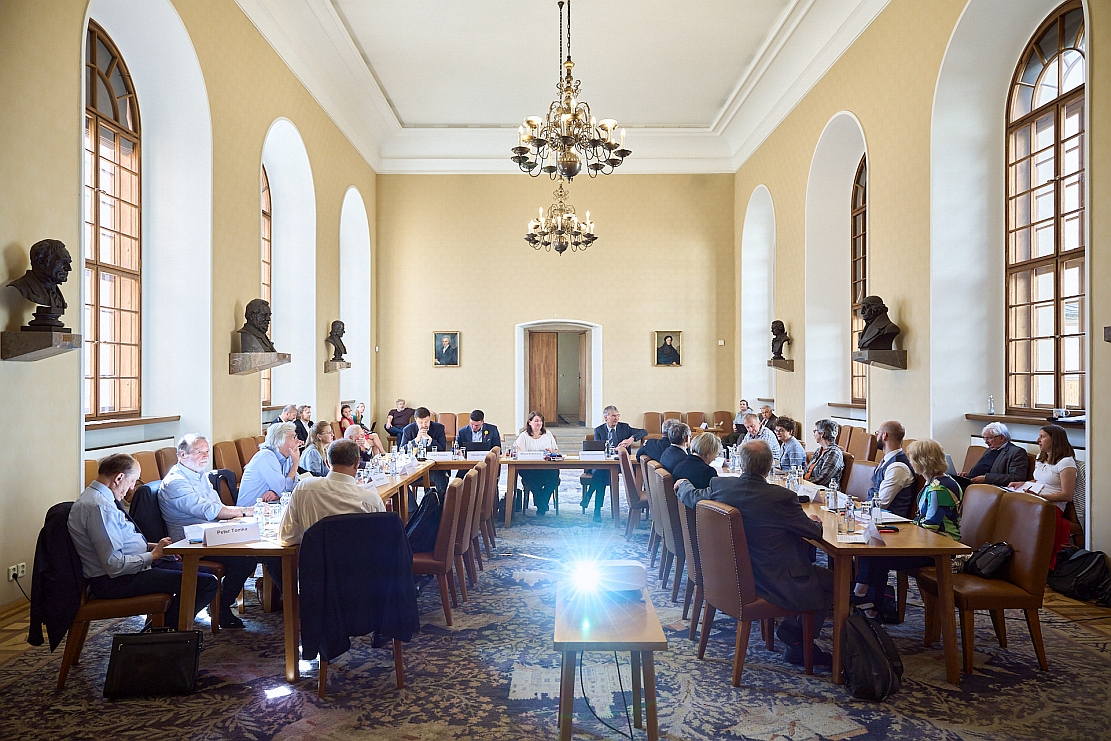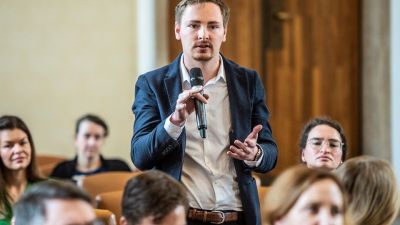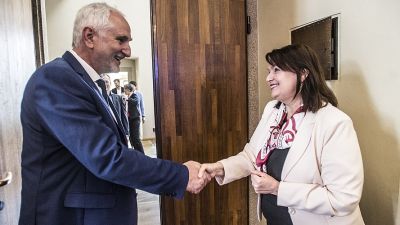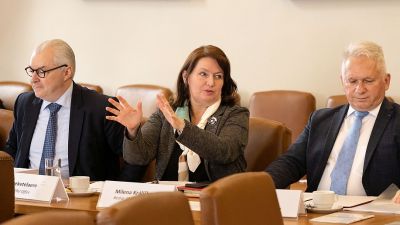Members of the International Advisory Board (IAB) at Charles University gathered for their annual meeting at the Hall of Patriots this week to discuss developments at CU over the last year and to discuss newer plans moving forward. The role of the IAB, as the name suggests, is to help the university lay solid foundations for its future, combining expertise and know-how across numerous scientific as well as administrative fields. It is a prestigious and important role to fill and Forum was happy to attend some of the proceedings.
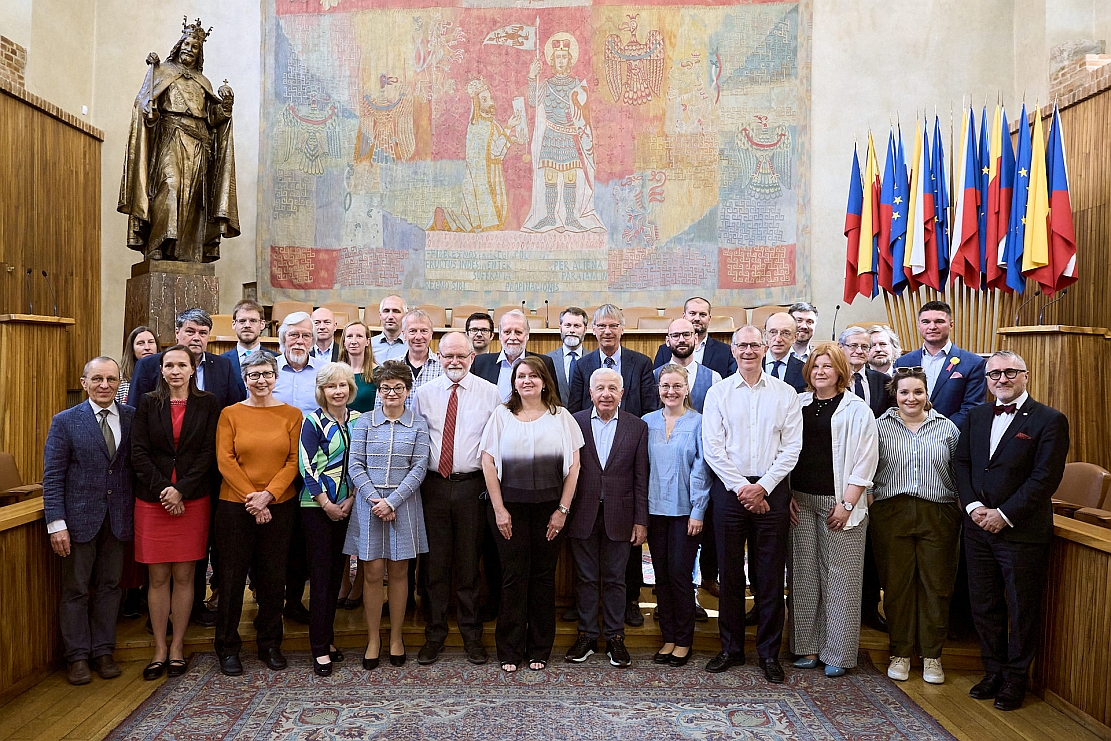
CU Rector Milena Králíčková (centre) with members of the IAB, members of her own board, deans, key administrative staff and others.
The International Advisory Board meeting is a chance to take the temperature and get a broad overview of the direction Charles University is heading. This week, over two or so days, CU Rector Milena Králíčková welcomed esteemed members in the heart of Charles University - the Carolinum building. The occasion was friendly and informal as everyone attending, including deans of respective faculties, focused on the job at hand. To advise, as best as possible, CU’s management on top decisions, including avoiding unnecessary pitfalls or mistakes already suffered by other universities. The aim is to learn and share best practices and this year’s meeting prompted robust debate. Analysis, not surprisingly, leans towards the constructive, provoking further examination and at times and re-evaluation.
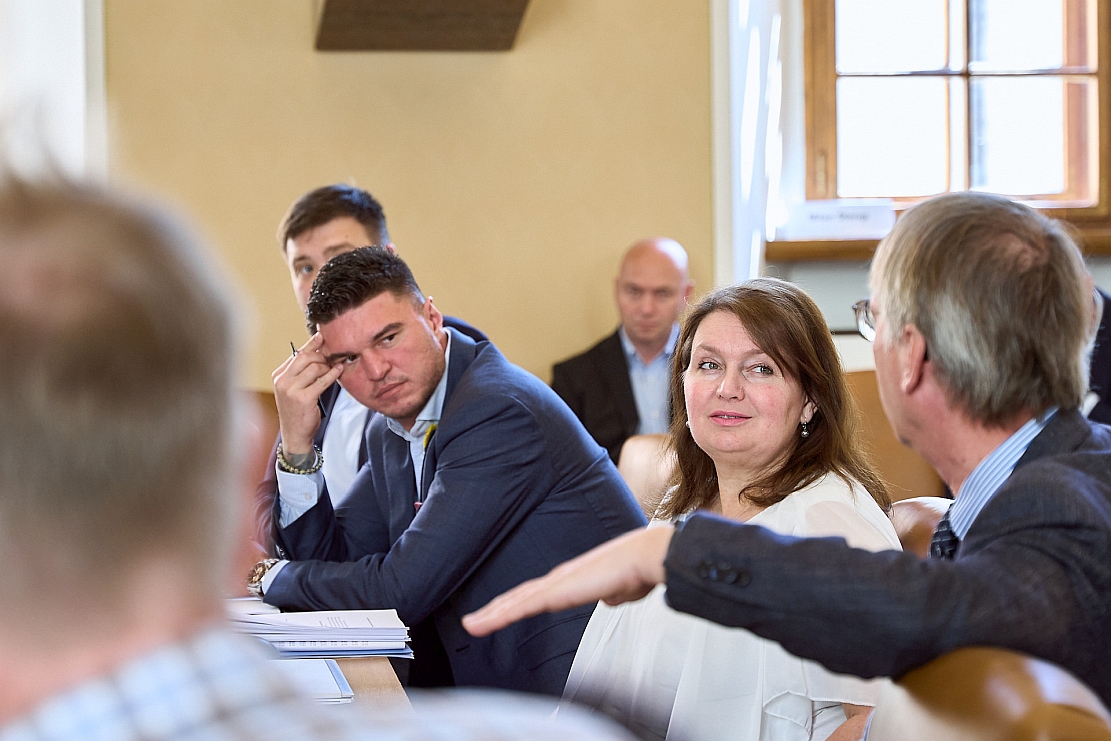
Rector Milena Králíčková listens to her colleague following her opening presentation; behind her, CUIP's Otamar Sláma.
Rector Králíčková opened the discussion with an overview of steps CU has moved forward on, including the construction of new, long-planned campuses, and also briefed IAB members on Charles University’s current emphasis on the importance of micro-credentials. As rector, Prof. Králíčková has, throughout the first half of her term, emphasised the importance of micro-credentials and the importance of becoming a key player and provider. She stressed as much on the first day of the IAB brief:
“Micro-credentials are something that we want to provide not only to our alumni but also the general public. We are really working towards this and also working for others, within the 4EU+ alliance, to be on board.”
Proceedings that followed presented in great detail, plans for the university’s technology transfer office, the Centre for Knowledge and Technology Transfer and a university tech transfer-related spin-off, CUIP. It’s managing board head Otomar Sláma discussed the future of both branches as well as details and sticking points in technology transfer as a whole. The debate or discussion which followed the overview, then touched on many points, as all manner of related questions tied to tech and IP, such as ownership, licencing, and revenues, as well as different strategic paths that lay ahead. Many IAB members, some of them scientists and researchers themselves, had plenty to contribute, not least having experienced or guided similar steps at their home institutions.
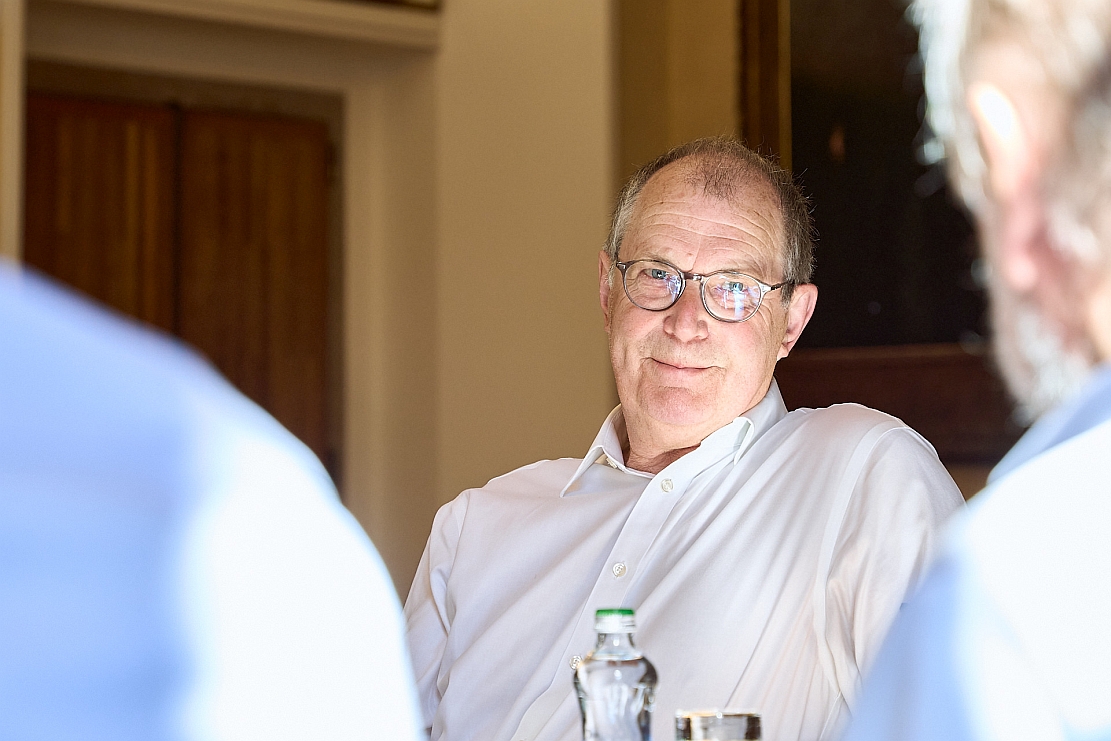
Keith Gull, a professor of Molecular Biology at Oxford University and member of the IAB at Charles University.
Afterwards, Forum spoke to Oxford’s Keith Gull, a professor of Molecular Biology at Oxford University and the head of the Gull Lab at the Sir William Dunn School of Pathology since 2022. He described the role the IAB plays each year, outlining why its activities are so important.
“It’s pretty easy [to explain]: we have to be critical friends and that means sometimes asking very difficult questions. These are questions that aren’t always asked internally because there is the assumption that maybe the results can’t be achieved. We are being a critical friend in an environment where the rectorate, the secretariate, the deans, can be very honest in voicing their opinions about where the university is – without any judgment. I think this is such an environment and I think we provide a context, at times sympathising since a number of our own universities have had similar problems, or still face the same issues, and we can produce solutions.
He emphasised the experience at the table was of significant value in the discussion.
“There is a lot of talent around the table of people from different backgrounds, from the humanities to medicine, the different sciences and social sciences, and people bring a different ‘geographical’ knowledge and discipline knowledge and experience of how people have tackled similar problems in the past. We provide advice but also interrogation and are not looking for everything to be perfect in one sense, because it never will be.”
Certainly, there is reason why most members had note pads, or electronic devices and laptops at the ready – both to follow the discussion but also jot down points for further debate. Professor Gull noted that advice and key points provided were more informal – after all as an advisory board, he said, it was not ultimately responsible for the actual hard decisions and the running of the university. He did stress that the board appreciated being filled in later even on advice in the end not taken, to better understand the thinking behind decisions and the overall process. Finally, he mentioned how important some of the issues discussed in the first tech bloc had been.
“In the UK, many of the universities went through some of these processes in the ‘80s or ‘90s and now we are in a different situation. You can benefit from what came before but you also have to remain sceptical if it is applicable today. Some of the issues we were hearing about [here] are certainly important. How research benefits an individual, what scientists are trying to do with their discovery, how the university enables that and sometimes releases into a commercial environment, and then how that is actually built into something that benefits society, or patients or the country while remaining sustainable… those are all important factors [for discussion].”


